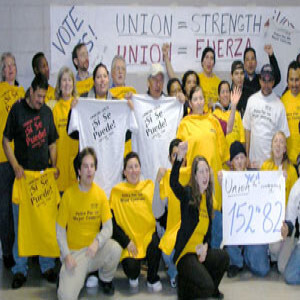
- Podcast Features
-
Monetization
-
Ads Marketplace
Join Ads Marketplace to earn through podcast sponsorships.
-
PodAds
Manage your ads with dynamic ad insertion capability.
-
Apple Podcasts Subscriptions Integration
Monetize with Apple Podcasts Subscriptions via Podbean.
-
Live Streaming
Earn rewards and recurring income from Fan Club membership.
-
Ads Marketplace
- Podbean App
-
Help and Support
-
Help Center
Get the answers and support you need.
-
Podbean Academy
Resources and guides to launch, grow, and monetize podcast.
-
Podbean Blog
Stay updated with the latest podcasting tips and trends.
-
What’s New
Check out our newest and recently released features!
-
Podcasting Smarter
Podcast interviews, best practices, and helpful tips.
-
Help Center
-
Popular Topics
-
How to Start a Podcast
The step-by-step guide to start your own podcast.
-
How to Start a Live Podcast
Create the best live podcast and engage your audience.
-
How to Monetize a Podcast
Tips on making the decision to monetize your podcast.
-
How to Promote Your Podcast
The best ways to get more eyes and ears on your podcast.
-
Podcast Advertising 101
Everything you need to know about podcast advertising.
-
Mobile Podcast Recording Guide
The ultimate guide to recording a podcast on your phone.
-
How to Use Group Recording
Steps to set up and use group recording in the Podbean app.
-
How to Start a Podcast
-
Podcasting
- Podcast Features
-
Monetization
-
Ads Marketplace
Join Ads Marketplace to earn through podcast sponsorships.
-
PodAds
Manage your ads with dynamic ad insertion capability.
-
Apple Podcasts Subscriptions Integration
Monetize with Apple Podcasts Subscriptions via Podbean.
-
Live Streaming
Earn rewards and recurring income from Fan Club membership.
-
Ads Marketplace
- Podbean App
- Advertisers
- Enterprise
- Pricing
-
Resources
-
Help and Support
-
Help Center
Get the answers and support you need.
-
Podbean Academy
Resources and guides to launch, grow, and monetize podcast.
-
Podbean Blog
Stay updated with the latest podcasting tips and trends.
-
What’s New
Check out our newest and recently released features!
-
Podcasting Smarter
Podcast interviews, best practices, and helpful tips.
-
Help Center
-
Popular Topics
-
How to Start a Podcast
The step-by-step guide to start your own podcast.
-
How to Start a Live Podcast
Create the best live podcast and engage your audience.
-
How to Monetize a Podcast
Tips on making the decision to monetize your podcast.
-
How to Promote Your Podcast
The best ways to get more eyes and ears on your podcast.
-
Podcast Advertising 101
Everything you need to know about podcast advertising.
-
Mobile Podcast Recording Guide
The ultimate guide to recording a podcast on your phone.
-
How to Use Group Recording
Steps to set up and use group recording in the Podbean app.
-
How to Start a Podcast
-
Help and Support
- Discover

On this day in labor history, the year was 2000.
That was the day meatpackers at Dakota Premium Foods in St. Paul, Minnesota staged a seven-hour sit-down strike for health and safety.
They protested assembly line speed-up, being forced to work while injured and the dreaded “gang-time,” supervisors used to avoid paying overtime.
Remarkably, the organizing drive came after the workers took action on their own behalf.
The United Food and Commercial Workers had organized the plant briefly in the early 1990s.
They quickly lost ground when the company pressed a successful decertification campaign after refusing a first contract.
This time, workers found that as the assembly line pace increased, so did the rate of injuries.
Workers came into the plant that morning, resolved to make a stand.
Management bullied them for hours throughout the day to give up.
Finally they were forced to concede to many of the workers concerns, including observation of line speed changes and uniform hours of work.
Workers eagerly signed UFCW cards, while the company unleashed its propaganda campaign to scare workers away from the union.
Management claimed workers would have to pay outrageous sums in union dues, that they’d lose their medical benefits and that their names would be turned over to the federal government.
The undocumented among the workers, some of whom were the best union fighters in the plant, were unshaken by these threats.
Then the company began targeting the strike leaders with firings and endless job transfers.
Workers stood intransigent and the UFCW overwhelmingly won the NLRB election a month later.
The union successfully weathered years of continued harassment, threats and decertification campaigns, but could not survive the closing of the plant in 2014.
More Episodes
 2026-02-18
2026-02-18
 2026-02-17
2026-02-17
 2026-02-16
2026-02-16
 2026-02-15
2026-02-15
 2026-02-14
2026-02-14
 2026-02-13
2026-02-13
 2026-02-11
2026-02-11
 2026-02-10
2026-02-10
 2026-02-09
2026-02-09
 2026-02-08
2026-02-08
 2026-02-07
2026-02-07
 2026-02-06
2026-02-06
 2026-02-05
2026-02-05
 2026-02-04
2026-02-04
 2026-02-03
2026-02-03
 2026-02-02
2026-02-02
 2026-02-01
2026-02-01
 2026-01-31
2026-01-31
Create your
podcast in
minutes
- Full-featured podcast site
- Unlimited storage and bandwidth
- Comprehensive podcast stats
- Distribute to Apple Podcasts, Spotify, and more
- Make money with your podcast
It is Free
- Privacy Policy
- Cookie Policy
- Terms of Use
- Consent Preferences
- Copyright © 2015-2026 Podbean.com


